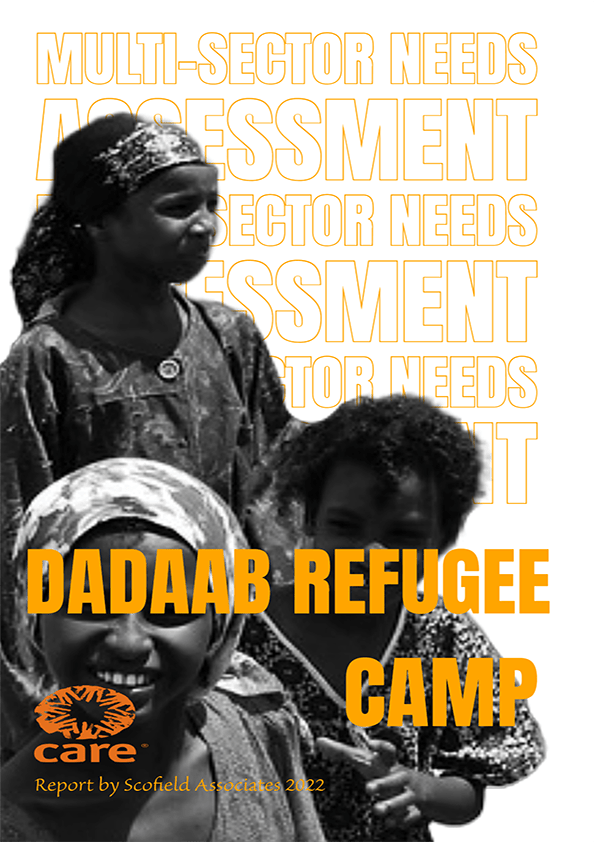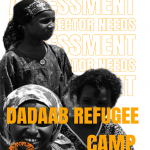
Multi Sector Needs Assessment Report- Dadaab Refugee Camp, July 2022.
Reports
July 31 , 2022
Executive Summary
The Multi-Sectoral Needs Assessment study conducted at the Dadaab refugee complex utilized both quantitative and qualitative methodologies. The study involved a detailed breakdown at the sub-camp level, encompassing demographics such as arrival data, household composition, gender distribution, country of origin, and length of stay in the camp. The assessment focused on seven critical sectors, using targeted questions to assess the status, availability of resources and infrastructure, access to services, and key stakeholders in each sector.
In the protection section, traditional conflict resolution mechanisms received positive feedback, particularly for addressing disputes related to resources. However, notable gaps were identified in addressing issues of sex and gender-based violence (SGBV). While religious practices contributed to conflict resolution, new conflicts were acknowledged due to competition for limited resources and economic opportunities. To mitigate this, refugees suggested using channels like protest letters to voice concerns to the UNHCR.
Education emerged as a pivotal concern for Dadaab refugees. Distance to facilities impacted attendance and access, raising safety concerns among respondents. Challenges included incomplete school attendance due to domestic chores, inability to afford uniforms and stationery, and having young children who couldn’t attend school. Gender-based analysis revealed variations in forced marriage, especially for girls, influenced by cultural dynamics.
Refugees across sub-camps prioritized food, water, and information, with security ranked fourth. Assistance was deemed insufficient by many respondents, causing tensions in households. Identification types varied, with most refugees possessing refugee alien cards from the Government of Kenya (GoK). Coping with food availability challenges involved casual jobs, borrowing, begging, and reducing meal consumption. Refuges advocated for cash-based food assistance to empower choice.
Water access and sanitation presented challenges, with varying costs and quality between sub-camps. Water usage patterns and collection methods varied based on scarcity and distance, influenced by gender roles. Cultural practices and religious beliefs positively impacted hygiene habits and water use. Health services faced resilience challenges during the Covid-19 pandemic, potentially compromising overall medical care.
Housing structures required improvement to withstand natural elements. Cooking energy primarily relied on firewood, with safety and conflict concerns noted. Employment sources were diverse, with a significant portion relying solely on humanitarian assistance. Challenges in opening and running businesses were attributed to permit costs and language barriers, hindering livelihood opportunities.

Multi Sector Needs Assessment Report- Dadaab Refugee Camp, July 2022
Download
Send download link to:
